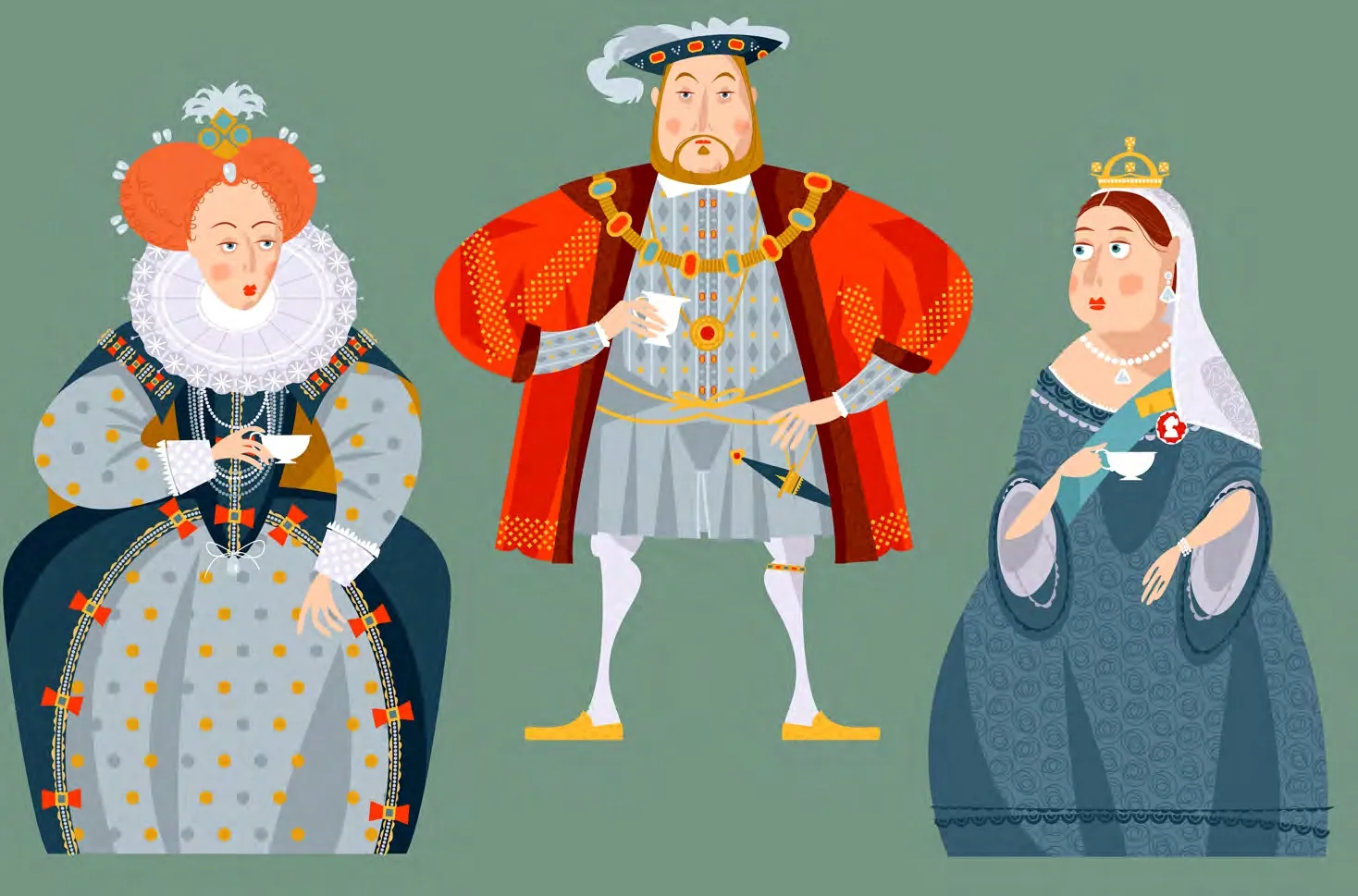The British Used to Drink Hot Water
2018-08-03ByZhangJiawei
By Zhang Jiawei
One winter, I traveled to a small town in Switzerland with some friends. One of my friends was not used to the Swiss cheese pot, so he took out a pack of instant noodles from his suitcase and went to the hotel staff for hot water.
The Swiss looked at him puzzled, “Hot water? We don’t have that here, would you like tea or coffee instead?”
It took a long time to get some hot water from the kitchen. When he returned, my friend grumbled,“Foreigners are so odd. They only drink ice-cold water, and don’t have any hot water for the Chinese people to drink. I wonder how in the world they keep from getting sick.”
The Europeans and Americans drink cold water not for the sake of their strong body. Back in the day they also drank hot water.
In the 19th century, a bestseller named The Handbook on Housekeeping Management was very popular in Britain—nearly every British citizen had a copy. It says that, “The old and the infirm should avoid drinking icy water or cold drinks. People who feel hot all over or who have just exercised should not eat cold food,otherwise they may become prone to illness or even die,” indicating that the British used to drink hot water in their daily life.
Before the emergence of modern medicine, people had scant knowledge of the fact that water should be sterilized before drinking, yet common sense told them that drinking hot water would reduce the likelihood of illness. Therefore, the idea that“hot water is good for health”became popular all over the world.

Long ago, the Europeans had no concept of the existence of bacteria, but through their everyday life they made a basic discovery: though they might become inebriated by drinking alcohol, it was great for controlling diarrhea (they didn’t know that alcohol kills germs); while on the other hand, though they would not become inebriated by drinking water, drinking it might lead to dysentery. The Chinese solved health problems inadvertently by their habit of drinking hot tea,as heating it sterilized the water.The Europeans drank alcohol on a daily basis from the middle ages to the modern era. In the 17th century, Dutch people drank a liter of beer per person per day on average.
Actually drinking hot water hasn’t become habitual for the Chinese people for a long time,not even for the high officials or noble lords. They say that Zhang Dai, a famous scholar in the Ming Dynasty (1368-1644), gave his friend Min Laozi cold water when entertaining him at his home, but the water they drank was unique:they only drank spring water from Mount Huishan, and they only fetched water in the evening when the new springs came bubbling up. Then they would carry water home in earthen jars,but only when a gentle breeze blew would they set off by boat,as they believed this was the only way to make the water clear and refreshing.
英国人以前也喝热水
文/张佳玮
有一年冬天,我和几个朋友去瑞士某小城旅游,朋友吃不惯瑞士奶酪锅,从行李箱里摸出早就备好的泡面,去找酒店工作人员要热水。
瑞士人一脸懵懂:“热水?您要喝茶还是咖啡?”
掰扯好一会儿,才在厨房讨到热水。朋友回去就嘟囔:“外国人真怪,自己喝冰水喝得滋儿滋儿的,还不让中国人喝热水,也不知道他们那身体怎么长的。”
欧美人喝凉水并非因为体格如何好,他们以前也喝热水的。
19世纪,英国有本畅销书叫《家政管理手册》,英国市民阶层几乎人手一本。书中写到:“老人与体弱的人应当回避冰,不喝冷的饮料。身上很热的人或刚运动过的人,绝对不要吃冷的东西,很容易得病,还可能送命。”这说明,英国人以前也喝热水的嘛。
现代医学出现之前,人们不知道喝水要杀菌,只是根据经验,发现喝热水者相对不容易得病,就归纳出“喝热水对身体好”的结论,于是各国都流行开来。
欧洲人早年没有细菌之类的概念,通过日常生活发现:喝酒易醉,但不拉肚子(他们不知道酒精杀菌);喝水不醉,但容易得痢疾。中国人喝热茶,无意间煮水杀菌,解决了卫生问题。中世纪到近代的欧洲人以喝酒为日常。17世纪,荷兰人平均每人每天喝一升啤酒。
中国人也不是长久以来都有条件喝热水的,甚至达官贵人也都喝凉水。明朝士大夫张岱和他的朋友闵老子就是例子。他们不仅喝凉水,而且还很有讲究。比如,喝惠山泉水,要等到晚间,新泉涌上,汲了之后,装瓮放船,趁有好风才走,让水保持柔和清澈。
旧上海弄堂里的居民,自家烧水很麻烦,往往喝冷井水,或去老虎灶找热水喝。体力劳动者没得挑,比如黄包车夫,跑完买卖能去茶馆喝一杯热茶,但若是跑路上渴了,就只好找街边水槽,甚至跟牛马一起喝水。民国时,北京四合院富贵人家,有所谓甜水、苦水之分。苦水用以洗衣养花,甜水用来喝。好的甜水可以卖,老天津人以前想卖力气的,就去南运河挑水,回来沿街叫卖,真有富人家肯花钱买。
所以,在现代饮水净化系统出现之前,西方与东方有条件的阶层都不爱喝凉水,普通百姓则没得选,有什么喝什么。净水问题解决后,西方人开始普及喝凉水。中国人则世代传承了烧煮杀菌的习惯,再加上喝茶离不开热水,家家有热水饮也就不奇怪了。
(摘自《国家人文历史》2018年第4期)


Residents in the old Shanghai lanes had trouble in boiling water,and they used to drink cold well water or go to a huge kitchen stove for hot water. Manual workers,like rickshaw pullers, hadn’t had much choice. They could go to the teahouse to drink a cup of hot tea after finishing their work.When they were thirsty on the road, however, they had to look for the street sink and even drink the water used by the cattle or horses. In the Republic of China(1912-1949), the wealthy elite of Beijing residing in the siheyuan(courtyard houses) had so-called bitter water and sweet water.The former was used for washing and growing flowers and the latter for drinking. Healthy sweet water could be sold. Old Tianjin coolies would go to the South Grand Canal to carry water, and when they came back, they would peddle it along the street, and they actually did find rich people who would pay for it.
Thus, before the advent of modern drinking water purification systems, the citizens of good means in the West and the East did not like to drink cold water, while the common people had no choice. After water purification came en vogue, the Westerners began drinking cold water, while the Chinese people’s habit of cooking and sterilization has been passed down through the generations. In addition,drinking tea cannot be separated from boiling water, which is why hot water can be seen nearly everywhere in China.
(From National Humanity History, April 2018. Translation:Qing Run)
